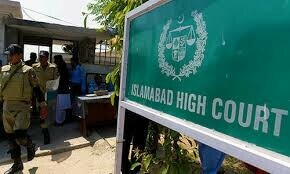CHAKWAL: From among all areas of the Indian subcontinent, it was Potohar region that suffered the most during World War I (WWI).
This was stated by Prof Naeem Shahid, the head of the Urdu Department at Government Postgraduate College Chakwal during the launching ceremony of ‘Pass-e-Salasil’ (Behind the Chains), the first ever novel on the lives of WWI soldiers from Potohar region, held recently.
As the British government is commemorating sacrifices of thousands of those soldiers who fought for the United Kingdom one hundred years ago in the war termed ‘The Great War for Civilisation’, the Potohar region which suffered the most in both world wars still does not have any authenticated record as to how many of its sons did not return from the war fronts.
About 1.2 million soldiers from India took part in WWI and out of these, 120,000 were from Potohar’s Chakwal, Jhelum, Rawalpindi and Attock districts.
The region produces first novel on lives of WWI soldiers
Hundreds of soldiers from Potohar were killed and injured during the war while many went missing. Iqbal Feroz has emerged as the first person to author a novel on this major subject which affected the lives of thousands.
The protagonist of the novel is Ahmed Khan, a soldier from Chakwal who is imprisoned in Germany during the war. In the prisoners’ camp he falls in love with Staifi, a German damsel who is an attendant at the camp. “The love tale of Ahmed Khan and Staifi has been beautifully knitted,” Prof Naeem Shahid said.
The writer who grew up hearing war stories from his elders and whose own grandfather Noor Khan went missing in the war has managed to add realism in his novel.
“The novelist has made the most of his imagination by using memories of his sittings with the elders of the village,” Prof Naeem Shahid added.
“Although the title of the novel needs to be reviewed, the effort of Iqbal Feroz is highly commendable as he is the first to write on this theme,” he said.
Amjid Adil, who also teaches Urdu at the same college, lauded the work of Iqbal Feroz and said the novel was “a great effort” which must be appreciated.
“Although the plot of the novel is not very strong as the narrative jumps from one scene to another, yet the story is very important,” he said.
“The language is easy and plain and is comprehensible to the common reader,” he added. Retired Lt-Gen Abdul Majeed Malik said the novel was “an important historic document”.
“After reading the novel I was left wondering whether Iqbal Feroz had written a novel or was it a book of history”.
“It is extraordinary effort to fictionalise events and incidents that occurred one hundred years ago. And I’m glad that this work has been accomplished by a son of Chakwal,” he added.
“Had the novel been published in English and German languages, it would have been a bestseller in the West,” he said.
Poet Qazi Baqir Waseem, who teaches Urdu at Asghar Mall College Rawalpindi, said: “Although Chakwal has produced a literary legend in the form of Colonel Ahmed Khan and the district has many poets, it was lacking in the field of novel writing. But now this gap has been filled; Iqbal Feroz has done a tremendous job.”
Describing the plight of the mothers, sisters, daughters, wives and beloved of those who went to war but did not return, Iqbal Feroz explained his point by quoting the famous local couplet written in context with the war.
“Kui bannay utay kahi hosi/Taruttian lamaan, randi sohagan sahi hosi” (A spade would be lying on the boundary of a field/After the end of the war it would be decided who has been rendered a widow and who has managed to preserve her marriage).
The author, Iqbal Feroz, said his main objective was to highlight the pains and sufferings of the soldiers and their loved ones and not to describe the horrors of war.
Published in Dawn, October 9th, 2014












































Dear visitor, the comments section is undergoing an overhaul and will return soon.